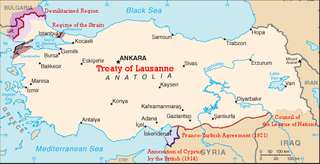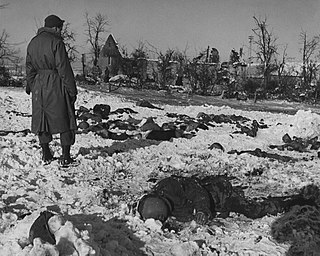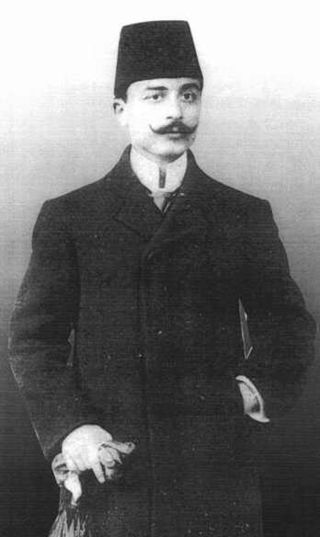
The Treaty of Lausanne is a peace treaty negotiated during the Lausanne Conference of 1922–23 and signed in the Palais de Rumine in Lausanne, Switzerland, on 24 July 1923. The treaty officially resolved the conflict that had initially arisen between the Ottoman Empire and the Allied French Republic, British Empire, Kingdom of Italy, Empire of Japan, Kingdom of Greece, Kingdom of Serbia, and the Kingdom of Romania since the outset of World War I. The original text of the treaty is in French. It emerged as a second attempt at peace after the failed and unratified Treaty of Sèvres, which had sought to partition Ottoman territories. The earlier treaty, signed in 1920, was later rejected by the Turkish National Movement which actively opposed its terms. As a result of the Greco-Turkish War, İzmir was reclaimed, and the Armistice of Mudanya was signed in October 1922. This armistice provided for the exchange of Greek-Turkish populations and allowed unrestricted civilian, non-military passage through the Turkish Straits.

A war crime is a violation of the laws of war that gives rise to individual criminal responsibility for actions by combatants in action, such as intentionally killing civilians or intentionally killing prisoners of war, torture, taking hostages, unnecessarily destroying civilian property, deception by perfidy, wartime sexual violence, pillaging, and for any individual that is part of the command structure who orders any attempt to committing mass killings including genocide or ethnic cleansing, the granting of no quarter despite surrender, the conscription of children in the military and flouting the legal distinctions of proportionality and military necessity.

Crimes against humanity are widespread or systemic criminal acts which are committed by or on behalf of a de facto authority, usually by or on behalf of a state, that grossly violate human rights. Unlike war crimes, crimes against humanity can be committed during both peace and war. They are not isolated or sporadic events because they are part of a government policy or they are part of a widespread practice of atrocities which is tolerated or condoned by a government or a de facto authority. They do not need to be part of an official policy, but they only need to be tolerated by authorities.

The Treaty of Sèvres was a 1920 treaty signed between the Allies of World War I and the Ottoman Empire. The treaty ceded large parts of Ottoman territory to France, the United Kingdom, Greece and Italy, as well as creating large occupation zones within the Ottoman Empire. It was one of a series of treaties that the Central Powers signed with the Allied Powers after their defeat in World War I. Hostilities had already ended with the Armistice of Mudros.

The Turkish War of Independence was a series of military campaigns and a revolution waged by the Turkish National Movement, after parts of the Ottoman Empire were occupied and partitioned following its defeat in World War I. The conflict was between the Turkish Nationalists against Allied and separatist forces over the application of Wilsonian principles, especially national self-determination, in post-World War I Anatolia and Eastern Thrace. The revolution concluded the collapse of the Ottoman Empire; the Ottoman monarchy and the Islamic caliphate were abolished, and the Republic of Turkey was declared in Anatolia and Eastern Thrace. This resulted in a transfer of vested sovereignty from the sultan-caliph to the nation, setting the stage for Republican Turkey's period of nationalist revolutionary reform.

Šamac, formerly Bosanski Šamac is a town and municipality of northeastern Bosnia and Herzegovina, located in the Republika Srpska entity. There are also small, uninhabited, parts located in Odžak municipality and in Domaljevac-Šamac municipality, Federation of Bosnia and Herzegovina.
Expeditionary Force may refer to:

The Special Organization was an intelligence, paramilitary, and secret police organization in the Ottoman Empire known for its key role in the commission of the Armenian genocide. Originally organized under the Ministry of War, the organization was shifted to answer directly to the ruling party Committee of Union and Progress (CUP) in February 1915. Led by Bahaeddin Şakir and Nazım Bey and formed in early 1914 of tribesmen as well as more than 10,000 convicted criminals—offered a chance to redeem themselves if they served the state—as a force independent of the regular army.

Ahmed Tevfik Pasha, later Ahmet Tevfik Okday after the Turkish Surname Law of 1934, was an Ottoman statesman of Crimean Tatar origin. He was the last Grand vizier of the Ottoman Empire. He held the office three times, the first in 1909 under Sultan Abdul Hamid II, and from 1918 to 1919 and from 1920 to 1922 under Mehmed VI during the Allied occupation of Istanbul. In addition to his premiership, Ahmet Tevfik was also a diplomat, a member of the Ottoman Senate, and the Minister of Foreign Affairs.

Damat Mehmed Adil Ferid Pasha, known simply as Damat Ferid Pasha, was an Ottoman liberal statesman, who held the office of Grand Vizier, the de facto prime minister of the Ottoman Empire, during two periods under the reign of the last Ottoman Sultan Mehmed VI, the first time between 4 March 1919 and 2 October 1919 and the second time between 5 April 1920 and 21 October 1920. Officially, he was brought to the office a total of five times, since his cabinets were recurrently dismissed under various pressures and he had to present new ones. Because of his involvement in the Treaty of Sèvres, his collaboration with the occupying Allied powers, and his readiness to acknowledge atrocities against the Armenians, he became an unpopular figure in Turkey and emigrated to Europe at the end of the Greco-Turkish War.

Ahmed Izzet Pasha, known as Ahmet İzzet Furgaç after the Turkish Surname Law of 1934, was an Ottoman general during World War I. He was also one of the last Grand Viziers of the Ottoman Empire and its last Minister of Foreign Affairs.

The occupation of Istanbul or Constantinople, the capital of the Ottoman Empire, by British, French, Italian, and Greek forces, took place in accordance with the Armistice of Mudros, which ended Ottoman participation in the First World War. The first French troops entered the city on 12 November 1918, followed by British troops the next day. The Italian troops landed in Galata on 7 February 1919.
The Malta exiles were the purges of Ottoman intellectuals by the Allied forces. The exile to Malta occurred between March 1919 and October 1920 of politicians, high ranking soldiers (mainly), administrators and intellectuals of the Ottoman Empire after the armistice of Mudros during the Occupation of Istanbul by the Allied forces. The Malta exiles became inmates in a British prison where various Committee of Union and Progress (CUP) officials were held in the hopes that trials will be held at the Malta Tribunals at a future date.

The Istanbul trials of 1919–1920 were courts-martial of the Ottoman Empire that occurred soon after the Armistice of Mudros, in the aftermath of World War I.

Bekir Sami Bey was a Turkish politician of Ossetian origin. He served as the first Minister of Foreign Affairs of Turkey during 1920–1921.
After World War I, the effort to prosecute Ottoman war criminals was taken up by the Paris Peace Conference (1919) and ultimately included in the Treaty of Sèvres (1920) with the Ottoman Empire. The Ottoman government organized a series of courts martial in 1919–1920 to prosecute war criminals, but these failed on account of political pressure. The main effort by the Allied administration that occupied Constantinople fell short of establishing an international tribunal in Malta to try the so-called Malta exiles, Ottoman war criminals held as POWs by the British forces in Malta. In the end, no tribunals were held in Malta.

The Leipzig war crimes trials were held in 1921 to try alleged German war criminals of the First World War before the German Reichsgericht in Leipzig, as part of the penalties imposed on the German government under the Treaty of Versailles. Twelve people were tried, and the proceedings were widely regarded at the time as a failure. In the longer term, they were seen by some as a significant step toward the introduction of a comprehensive system for the prosecution of international law violations.

The Commission on the Responsibility of the Authors of the War and on Enforcement of Penalties was a commission established at the Paris Peace Conference in 1919. Its role was to examine the background of the First World War, and to investigate and recommend individuals for prosecution for committing war crimes.

On 24 May 1915, on the initiative of Russia, the Triple Entente—Russia, France, and the United Kingdom—issued a declaration condemning the ongoing Armenian genocide carried out in the Ottoman Empire and threatening to hold the perpetrators accountable. This was the first use of the phrase "crimes against humanity" in international diplomacy, which later became a category of international criminal law after World War II.

Mehmed Kemal Bey was an Ottoman administrator and educator from the Young Turk party involved in the Armenian genocide. He served as the sub-prefect of Boğazlıyan, governor of Yozgat, and inspector of deportations in Konya. He is known for organizing the deportation of 40,000 Armenians from Boğazlıyan, establishing "killing sites" in the Yozgat region that resulted in the deaths of thousands of Armenians during the genocide, and overseeing deportations in Konya. Kemal Bey was the first person executed of the Istanbul trials.
















